







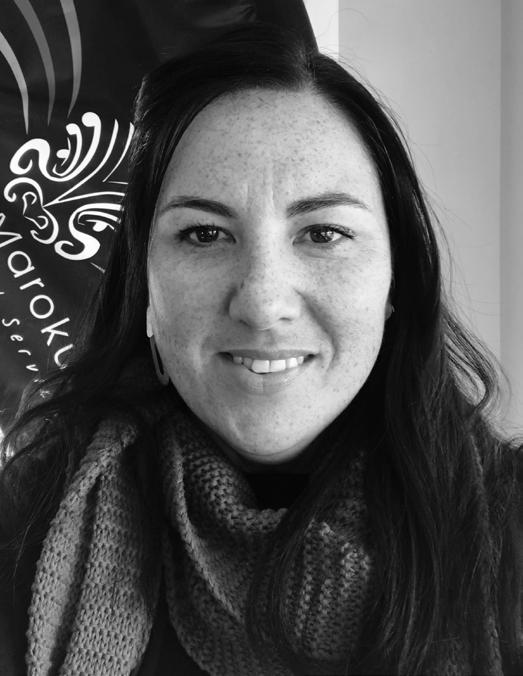














Kupu Arataki – Introduction... pg 3-6

› Quiz – Famous fictional couples... pg 7
› Celebrating women and girls in science and technology... pg 8–15
› Helping horses in Fiji... pg 16

› Te reo Māori akoranga #1 – lesson #1 Kēmu Patapatai - Quiz... pg 17–18
› My slice of Kiwi heaven... pg 19
› One minute with… Marcus Aupuni, Protective Security Adviser, Waitaha Canterbury and Te Tai o Poutini West Coast... pg 20
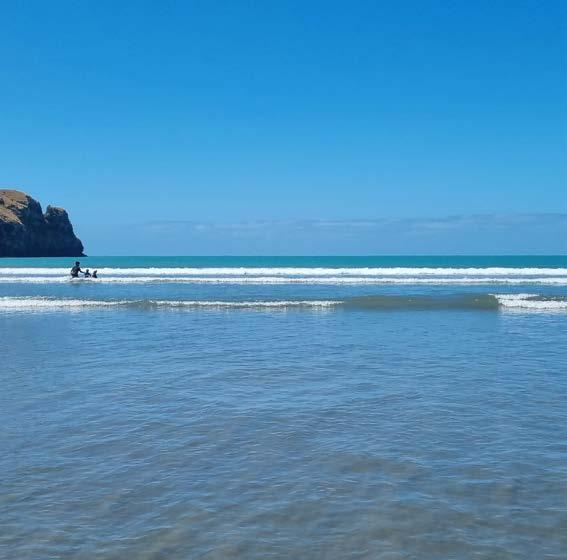
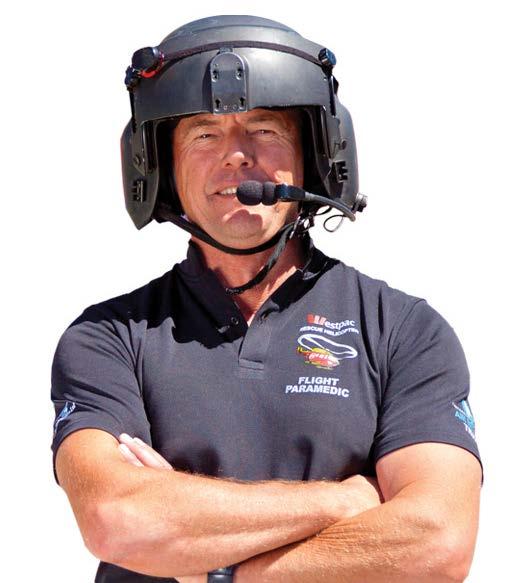
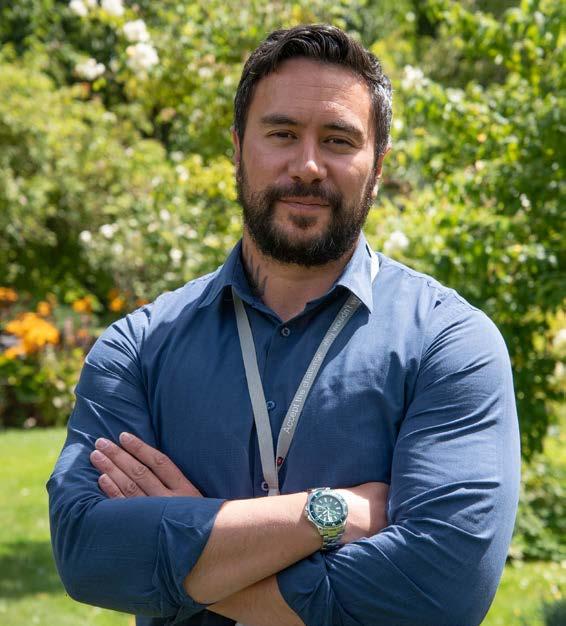
› Whakamihi – Bouquets... pg 21–22
Ā mātou korero – Our stories
› Helipad ensures fast access to life-saving treatment... pg 23

› Bright, sustainable future for Christchurch Women’s Hospital... pg 24
› Creating accessible information... pg 25
Pānui – Notices ...pg 26–29

Our hearts go out to our health colleagues, friends and whānau who have been impacted by the current storm sweeping through the North Island. It’s a stressful time for everyone involved. Please remember it’s normal and okay to feel ‘over it’ and that it takes courage to ask for help, but please reach out to one of the many agencies ready to support you.
Take one day at a time and be kind to yourself.
We are proud to dedicate a substantial portion of the pānui to the extraordinary wāhine working in Te Whatu Ora science, technology, engineering and maths (STEM). Although only eight are featured, they represent the thousands of women who have chosen a career in STEM and who make a difference in our Health System and communities every day.
Read more on page 8
It’s all rIght to reach out.
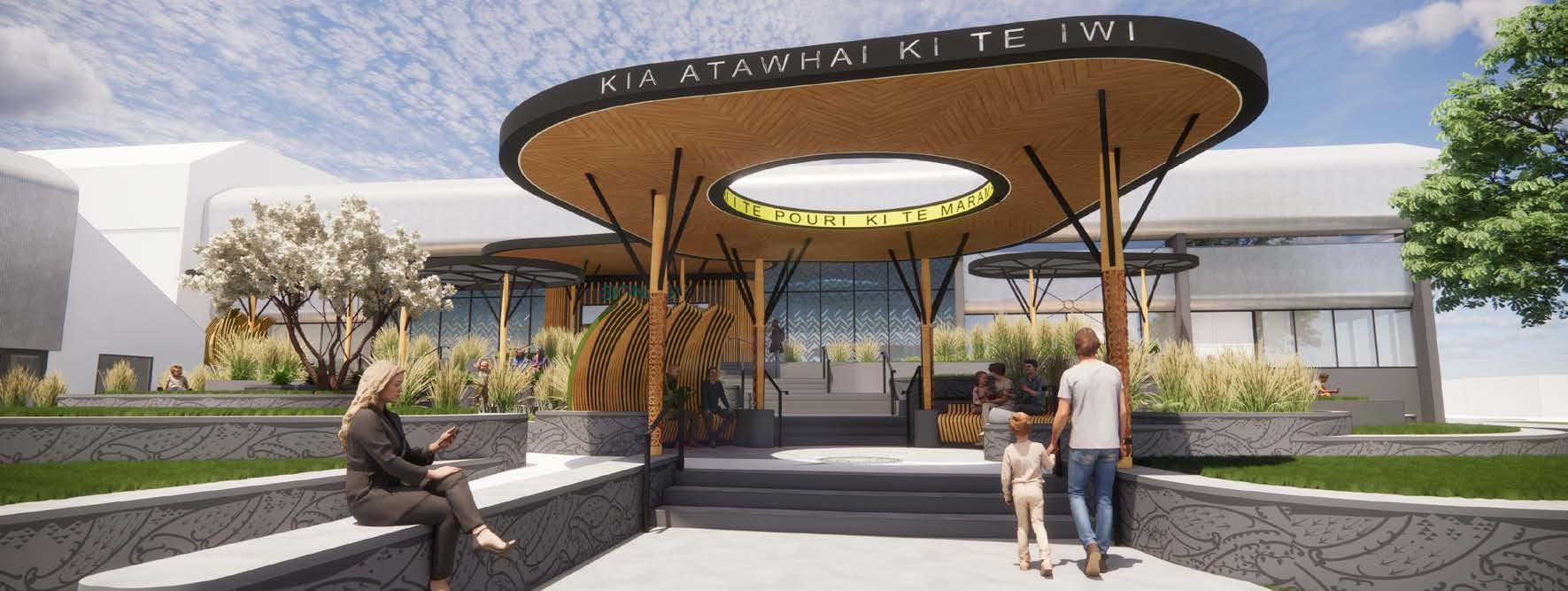
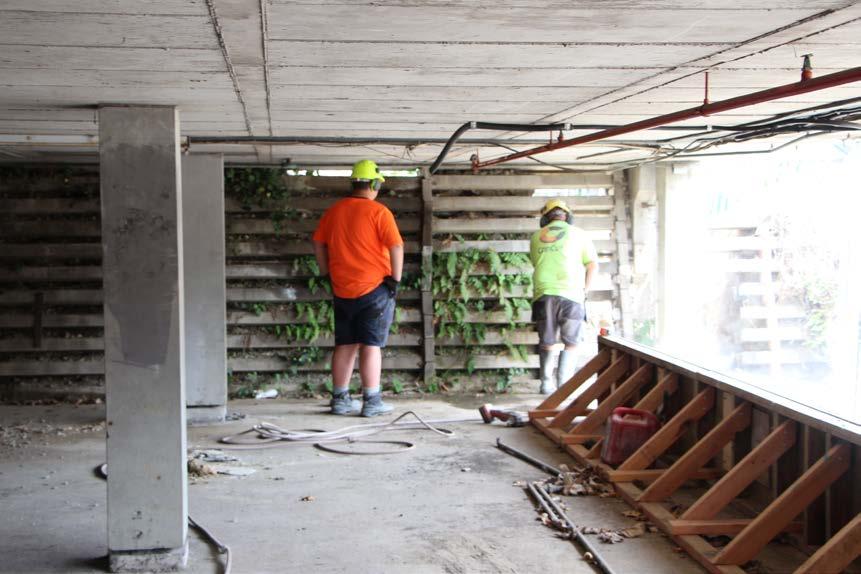
Construction of the new Child Adolescent and Family mental health outpatient building, to be known as Kahurangi (meaning ‘blue skies’) is underway on the Hillmorton campus. Structural strengthening started in November with Hann Construction at the helm and work continued over the holiday season. The facility, which is being jointly developed by Māia Foundation and Te Whatu Ora Waitaha Canterbury, is located in the former Canterbury Linen Services building, on the outskirts of the Hillmorton campus.
Substantial public funding has been approved to redevelop the site, including earthquake strengthening to provide an upgraded ‘shell’, however, the fit-out and enhancements are to be largely funded by the Māia Health Foundation. Since the last update the internal strip out has been completed, some of the basement foundations poured, two of the larger level one walls are poured and prep works continue on the other walls.
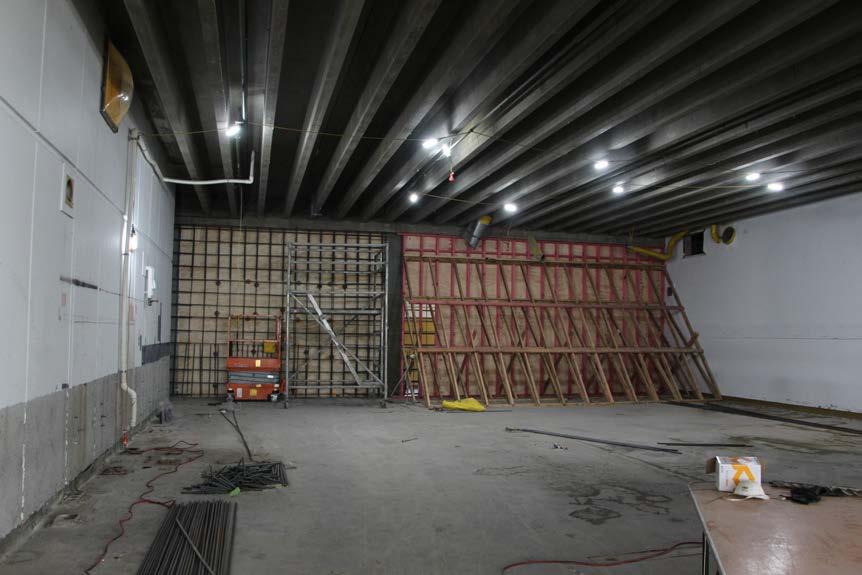
To keep up-to-date with the project and with Māia Foundation sign up to their monthly e-newsletter and follow them on Facebook, Instagram or LinkedIn

Māia Health Foundation’s current major project is to help create a modern Child, Adolescent and Family outpatient facility – Kahurangi. Māia’s $6 million commitment is enabling a state-of-the-art fit-out, specialised treatment areas, and a separate entrance for emergency presentations, which will provide security and privacy to those who are most vulnerable.
So far Māia has raised $3.5 million towards its $6 million goal but there is still a way to go. To assist in the fundraising efforts, Māia is holding a fundraising
On Monday, 6 February, a massive earthquake measuring 7.8 rocked a large area of southern Turkey and the border with Syria. The strongest earthquake to strike Turkey in more than 80 years has caused significant damage in both countries.
At this time, an estimated 3000 buildings have been destroyed and more than 30,000 people are confirmed dead, with many still unaccounted for. This catastrophic event is distressing to witness, even from so far away.
Cantabrians can empathise with the people of Turkey and Syria and appreciate the ongoing trauma and fear they are experiencing.
It is normal that a disaster like this would trigger feelings and memories in people who lived through the Canterbury earthquakes of 2010 and 2011. The Turkey earthquake and the recent weather events in the North Island remind us of the power of nature and can make us feel vulnerable.
If your feelings about these events are causing you anxiety or affecting your sleep, work or general mental wellbeing, help is available.
The Employee Assistance Programme (EAP) is a professional and confidential support service available to you if you’re experiencing difficulties, whether personal or work-related.
party on Friday 28 April and invite anyone interested to join Māia Trustees, staff and supporters for a night to remember.

This is sure to be a lovely evening in the historic Great Hall at the Arts Centre, the perfect opportunity to catch up and hear about Māia’s latest news! For more information and to purchase tickets go to their website maiahealth.org.nz
Call the EAP Services National Support Centre on 0800 327 669 to arrange an in-person, video or telephone appointment at a time that suits you. Appointments are available 7:30am - 7:30pm, Monday to Friday. Some locations offer extended hours, including weekend support.
You can also call or text 1737 (24/7) for free mental health support.
For those who would like to help the people in Turkey and Syria affected by the earthquake, there are several options including the following.
Frontières is on the ground in northern Syria providing aid to the injured. Their teams are also donating emergency medical kits to other facilities in the region. Donate here
› Save the Children has set up a children’s emergency fund to help provide children in need (in both countries) with shelter, food, and warm clothing. Donate here
› The International Federation of Red Cross and Red Crescent Societies are raising funds to support the Turkish Red Crescent and the Syrian Arab Red Crescent, which are providing food, medical care, psychological support and search and rescue efforts. Read more and donate here
It’s okay to indulge in some special culinary treats on special occasions but Valentine’s Day is no excuse to overdo it. Here are five tips for a healthier Valentine’s Day for you and your beloved.

1. If weather permits, do something outdoors. Maybe a romantic walk on the beach, a bike ride or even some sport such as golf or tennis if that’s what you enjoy.
2. Make some substitutions. Sparkling water for soft drinks; salmon for steak; salad for fries; dark chocolate for milk or white chocolate. You don’t have to miss out but try to make some healthy food and drink choices.
3. Practice portion control. There’s no need to deprive yourself. This allows you to enjoy some treats, in moderation.
4. Go easy on the alcohol. Try alternating each alcoholic beverage with a glass of water, drinking lite beer and using soda water instead of tonic or other mixers.
5. Have a laugh. If you’re going to catch a movie or snuggle on the couch in front of the TV, make it a comedy. A good laugh can lower stress, lift your mood, decrease inflammation in your arteries and even support a healthy cholesterol profile.
Current and former Health and Disability system response staff can now register for the COVID-19 Response Recognition Award in acknowledgement of their contribution to New Zealand’s COVID-19 response.
To be eligible for the COVID-19 Response Individual Award you need to have been employed or contracted by Ministry of Health (MOH) or identified as part of the COVID-19 Health and Disability System Response (HSR) for a minimum of one month between March 2020 and 30 June 2022 and been active in a role:
› That provided direct operational support to the frontline COVID-19 Health and Disability response; or
› As a doctor, nurse or Healthcare and Disability staff who cared for patients with COVID-19, including for example, disability support workers and Māori hauora providers, Pacific health workers
‘Direct Operational Support’ refers to those workers who may not necessarily have faced COVID-19 every day or administered vaccinations but whose
roles were critical to ensuring that others could. If you are still unsure whether you are eligible, please contact the team at C19RecognitionAwards@health. govt.nz and we can help.
Contractors, part-time and full-time staff who meet above criteria are eligible to apply for the award.
Please register through the Te Whatu Ora registration portal www.covid-19responseaward. powerappsportals.com by 3 March 2023. Registrations will be reviewed against the criteria and awarded after approval.
Awards are a lapel pin in a display box and a personalised certificate. These will be sent to New Zealand addresses.
› If you have any questions, please email the COVID-19 Response Recognition Award team at C19RecognitionAwards@health.govt.nz
› Read the privacy statement here: Privacy Statement COVID-19 Response Recognition Awards – Te Whatu Ora - Health New Zealand
› Read the news item at Te Whatu Ora online here: COVID-19 Response Recognition Award – Te Whatu Ora - Health New Zealand

Literature, theatre and film have produced many famous couples. Tragic, comedic, romantic, and a little bit dramatic, they have left their mark. How many of these do you know?
1. Which character of Shakespeare was convinced by his wife, to murder the king?
a. Othello
b. Macbeth
c. Hamlet
d. Petruchio
2. In the novel and movie, The Notebook, why does an elderly man repeatedly tell his wife the story of their romance and life together?
a. She has amnesia
b. To convince her to stay with him
c. She has dementia
d. To remind himself
3. The Yorkshire moors, an obsessive relationship, vengeance, a ghost and a Kate Bush song. What 1847 novel is being described?
a. Jane Eyre
b. The Count of Monte Cristo
c. Wuthering Heights
d. Agnes Grey
4. In the TV comedy Modern Family, Lily is the daughter of which couple?
a. Cam and Mitchell
b. Jay and Gloria
c. Claire and Phil
d. Dylan and Haley
5. What were Rose’s last words to Jack before he slipped under water in the movie Titanic?
a. “Climb up on the door. There’s plenty of room.”

b. “Stay with me Jack.”
c. “It’s okay. The rescue boats are coming.”
d. “I'll never let go, Jack. I'll never let go. I promise.”
6. In the 1955 Disney cartoon Lady and the Tramp, the Tramp is a mix-breed terrier living on the street. What breed is Lady?
a. Poodle
b. Cocker Spaniel
c. Maltese
d. Doberman
7. The longest running show on Broadway, The Phantom of the Opera is scheduled to end its run in April after 35 years. In the story, the Phantom is obsessed with Christine. Who does she end up with?
a. Joseph Buquet
b. Viscount Raoul de Chagny
c. Erik (The Phantom)
d. No one. She ends up alone
8. Which of the following is not a couple in the movie Love Actually?
a. Jamie and Aurelia
b. David and Natalie
c. Juliet and Mark
d. John and Judy
9. This famous TV couple met and fell in love in high school. They managed to stay together and raise three children despite his excessive beer consumption, childish behaviour, poor parenting skills and appalling carelessness with money. Who are they?
a. Homer and Marge Simpson (The Simpsons)
b. Cliff and Claire Huxtable (The Cosby Show)
c. Lord and Lady Crowley (Downton Abbey)
d. Ma and Pa Walton (The Waltons)
10. True or false. Rhett Butler and Scarlett O’Hara never marry in the book/movie Gone with the wind.
a. True
b. False
Check your answers on page 26
Saturday 11 February was the eighth annual International Day of Women and Girls in Science. Women remain under-represented in science, technology, engineering and maths (STEM) careers in New Zealand. Fewer than one in 20 girls considers a career in STEM compared to one in five boys which is a huge loss to many industries, including health.
Today we celebrate some impressive women who chose a STEM career and who make a difference to Te Whatu Ora and the communities we care for, every day.
Note: Most of these responses are edited. Click on the links below to read the Q&As in full.
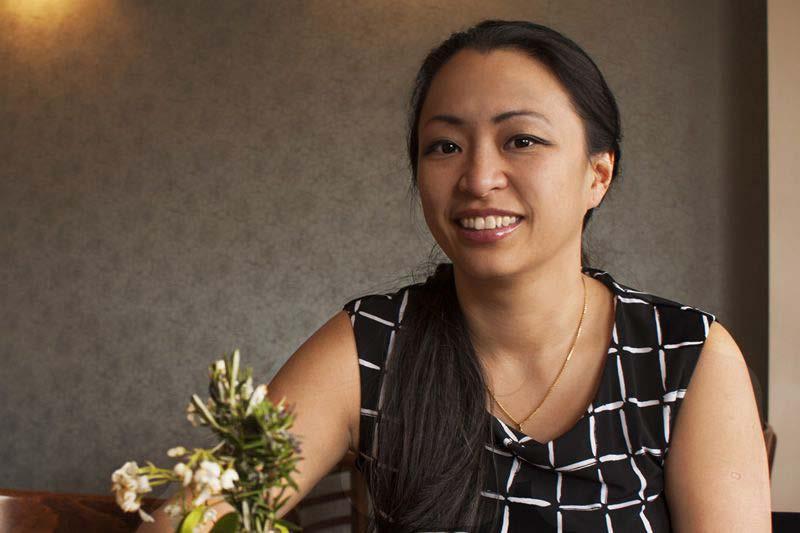

Who or what inspired you to study science / technology?
Growing up in Singapore, technology was part of my daily life, and I've always felt drawn to the digital world for work and play.
My involvement in science as a career was more of an evolution. I have been a registered dietitian since 2005 in private and public practice, with most of that time at Christchurch Hospital. I have specialised in paediatrics since 2006 and previously was a nutritionist for Child Health Services, Ministry of Health in Singapore. On reflection, the spark was lit with a job at 15 years old as a pastry chef at the Marriott Hotel.
Why did you choose your particular field?
Deciding to enter a particular field often comes down to people. I was fortunate to have experienced people who could see my character and potential ‘superpowers’ when a younger me couldn't see them. One of my tutors in Singapore strongly recommended the Dunedin dietetics course to me, and later another tutor stopped me from accepting a job in the UK. In retrospect, both were excellent decisions. I have benefited from advice by strong and competent women on my journey.
What advice would you give to a young girl contemplating a career in health / science / technology?
I would advise young girls considering health, science and technology to take the opportunity to go and see what the jobs are like in the workplace.
“As a woman with a career in science and technology, I don't let myself see barriers because of my gender. I tell my daughter this and would say this to all young women considering a science and technology path.”
Charlene Tan-SmithKeep a look out for mentors on your journey. Find women who have made achievements and form relationships with them. These types of relationships, for which I am eternally grateful, have been pivotal in my career from the start.
What hurdles have you faced throughout your studies and career?
I don't think in terms of hurdles in my career or my clinical practice. I am about to complete my Doctorate of Professional Practice investigating a theoretical framework of acceptability for medical technology. The programme emphasises reflection
in clinical practice. So, from a clinical perspective, it's not about hurdles but reflecting or reflexing and changing processes or practice.
Regarding my career and development of the ketogenic service, I don't see an unsuccessful proposal as a hurdle but rather as a time to learn and pivot. In general, we are all afraid to fail. Developing the resilience to fail fast and pivot has worked well for me.
What's the best thing about working in science / technology?
The best thing about working in science and technology is I love to see outcomes. For Māori and non-Māori. I'm blessed to have the perfect mix of clinical, informatics, and digital tools. In all of my roles, I can make a change and improve patients' clinical outcomes, which gives me great joy.

How does gender affect the work you do? Has it affected your career progression?
I don't often consider my gender in any of my teams. Dietetics is overwhelmingly femaledominated, but multidisciplinary and technology development teams aren't. Maybe I don't let my gender affect my perception of myself. Attitudes towards my ethnicity have been more of an issue at specific points in my studies and career, and I've learnt to ignore biased views directed towards me.
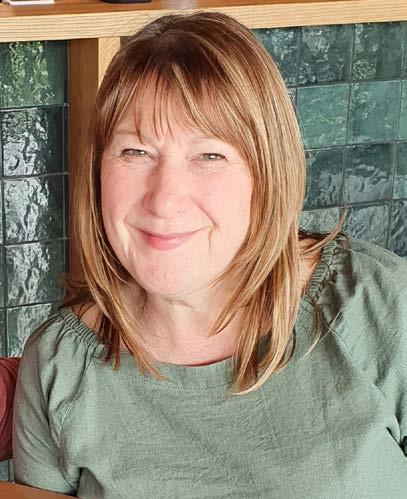
Who or what inspired you to study science / technology?
My chemistry and biology teachers in high school. If it hadn’t been for them I would probably have chosen accounting!
Why did you choose your particular field?
After graduating from the University of Glasgow, I was a research assistant in the field of immunopathology, which didn’t exactly float my boat. A friend had moved into the field of human genetics and she made it sound so interesting. I secured a scientist’s position at the Duncan Guthrie Institute of Medical Genetics, Glasgow where I went on to qualify as a clinical scientist. I was fascinated by how chromosome abnormalities arose and how they contributed to human disease. I realised with hindsight, that I was drawn more to diagnostic science, rather than pure research.
I cultivated an interest in prenatal cytogeneticsthe diagnosis of chromosome disorders, such as Down syndrome, in pregnancy. I later developed the first pre-implantation genetics testing service in Scotland testing embryos for couples carrying known genetic variants.
I was lured to New Zealand in 2005, seduced by the endless sunshine and the sauvignon blanc, to set up a prenatal diagnostic genetic testing service
at CHL. I now lead the Microarray team where we look for genetic changes that cause development delay and congenital anomalies in children and pregnancy.
What advice would you give to a young girl contemplating a career in health / science / technology?
If you’re passionate about the subject, go for it. Seek advice from mentors. Consider medical laboratory science if you’re keen to work in a diagnostic lab.
What hurdles have you faced throughout your studies and career?
I’ve found it to be a rewarding career. I could have had less self-doubt and been better at speaking out. This is a bit of a generalisation, but in my experience, scientists are not the greatest self-advocates. The skills required to make a great diagnostic scientist do not tend to include marketing and promotion!
What’s the best thing about working in science / technology?
Genetics is ever changing which keeps me fresh. It’s such a cliché, but for me it’s knowing that I am making a difference to families. I get such a buzz when we identify a rare disorder that is the cause of a child’s challenges. The diagnostic journey can be a long one, but it is steadily improving.
How does gender affect the work you do? Has it affected your career progression?
It doesn’t impact me directly as far as I’m aware. Our workforce is mostly female and has been wherever I’ve been employed.
Read Jane’s answers in full here

Who or what inspired you to study science / technology?
I fell into technology but if I was able to go back in time I probably would have chosen a different degree in the science / technology field.
Why did you choose your particular field?
I’m not sure whether I chose it, or whether it was a lucky opportunity which came along at the right time!
What advice would you give to a young girl contemplating a career in health / science / technology?
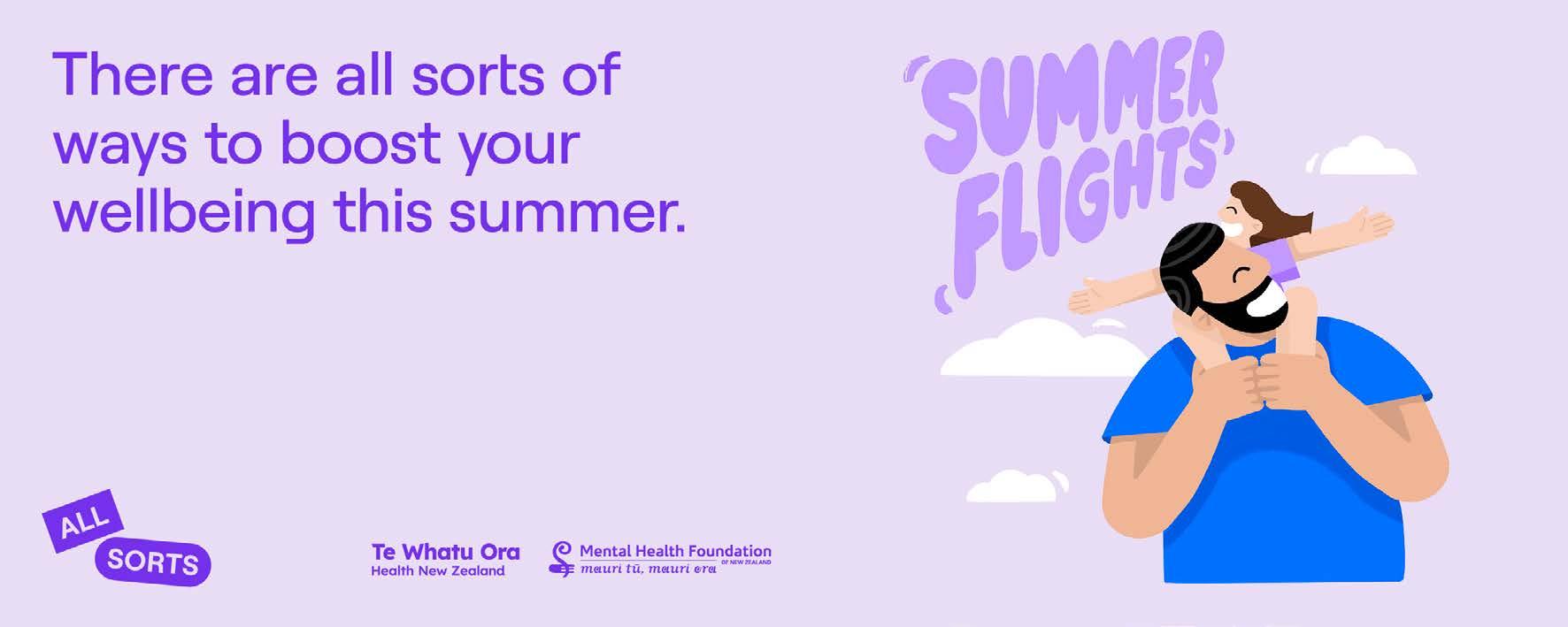
It is a great environment to work in. And don’t be afraid to change your plans.
What hurdles have you faced throughout your studies and career?
No real hurdles but decide where you are heading, set yourself some goals and go for it.
What’s the best thing about working in science / technology?
It’s a great team and there are opportunities to make a real difference.
How does gender affect the work you do? Has it affected your career progression?
I’m not sure gender has impacted my career progression. In our team it is about experience and bringing different perspectives to the work. Maybe gender influences perspective but then so do many other factors.
Link to Debbie’s Q&A here.

Who or what inspired you to study science / technology?
Back In primary school my favourite subjects were biology and chemistry and that interest has stayed with me. I don't know that there was any particular inspiration, but I do recall being fascinated learning about how heroin works in the brain.
Why did you choose your particular field?
In Denmark, where I'm from, you can study pharmaceutical sciences at university and that seemed like the right fit for me, combining biology and chemistry with an applied angle. I really liked the laboratory work which led me to specialise in bioanalysis. I now work as a scientific officer at Canterbury Health Laboratories developing new laboratory tests to improve patient care.

What advice would you give to a young girl contemplating a career in health / science / technology?
Follow your passion/interests. That's what will get you through the hard days.
What hurdles have you faced throughout your studies and career?
When I worked as a university research scientist, applying for funding was like a marathon of hurdles. It felt like more time was spent applying for funding than actually doing the research. That is probably not quite true, but it did influence my decision to leave research when I started a family. Data will probably show that women in general leave that race earlier than men do.
What’s the best thing about working in science / technology?

I like the challenge of being presented with a problem, then researching it and building up the knowledge to be able to come up with a solution that can actually be applied as well. When it all comes together - or when you at least understand why it might not - that to me is very satisfying.
How does gender affect the work you do? Has it affected your career progression?
Before having children, I didn't think gender mattered much. There would have been unconscious gender bias around, but I didn't see it. I was fortunate to have some strong female role models such as my mum who was one of the few female computer programmers at IBM back in the early days Later on, during my PhD, my supervising professor was a very inspiring woman.
However, reaching mid-career and balancing work life with family life, I definitely think impacts career progression of women more than men. This starts with parental leave. New Zealand could really improve conditions for families by moving towards the new rules in the EU with a minimum of four months parental leave to each parent. The New Zealand primary school system is built around having one parent working part-time. In the majority of cases this is a woman.
I do see signs of progress, but there is still a way to go for gender equality in New Zealand and we need systems to help bring about change.
Link to Berit’s Q&A here.
Who or what inspired you to study science / technology?
I became preoccupied with science following my first science class on ‘matter’, when I was 11 years old. There were a couple of awesome teachers (Mr Crampton and Dr Coates) who greatly influenced my enjoyment of science and my ultimate decision to make it my career. During my PhD studies, I found a good friend and role model in another PhD student (Victoria Metcalf).
Why did you choose your particular field?
I’ve always wanted to understand the cause of human disorders/disease, and genetics is fundamental to that. In my time I’ve worked across many different areas within genetics, from blood clotting disorders to dyslipidaemia, developmental disorders, fertility, and now oncology/ haematological neoplasms.
What advice would you give to a young girl contemplating a career in health / science / technology?
Stay true to yourself and what drives you. If you are interested in STEM, do not let anyone put you off. Search for those female mentors and role models to share your journey with. Things are only going to get better from here. If you end up in a leadership position, lead in a way that is authentic to you, not how you have learnt to lead through male counterparts. The definition of a ‘good leader’ is changing – be part of that change.
What hurdles have you faced throughout your studies and career?
When I first started working in this field, the laboratory I was in was nearly 100 percent male and as a young student at the time, I didn’t have many female role models or mentors present. At many stages over the years, I was the only female working in Molecular Pathology at Canterbury Health Laboratories.

This has changed quite dramatically now, where females are the majority. There definitely have been some hurdles around remuneration and being taken seriously (mainly by external parties) as a female scientist.
What’s the best thing about working in science / technology?

It is a fast-moving area, there are constantly new developments and new technologies, so it keeps the job interesting. I’m always learning new things. I enjoy working with the haematologists, anatomical pathologists and oncologists to support what they do.
How does gender affect the work you do? Has it affected your career progression?
I don’t feel that it has made a huge difference fortunately, although the remuneration has been shown to differ between female and male scientists, which is being rectified. There are not enough molecular scientists in the country, we are a small niche group and I think that has helped. Read Vivienne’s full Q&A here.
“Females have a lot to offer, and we need that diversity in STEM and across the board.”
Vivienne Bickley
Who or what inspired you to study science / technology?
Science and chemistry was something I was interested in and enjoyed at school, so was my first choice when I decided to retrain after I had children.
Why did you choose your particular field?
Medical science is about helping people, and with my current role working to facilitate the clinical trials and research studies coming through the laboratories I am a small part in helping with further advances in medical treatments and new diagnostic testing methods.
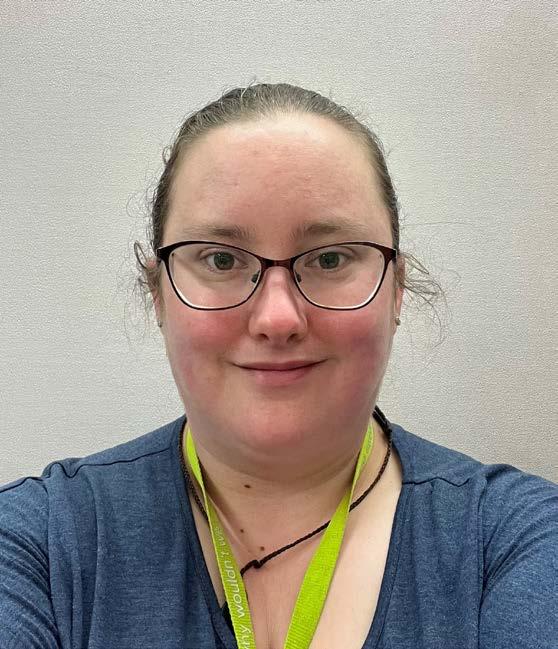
What advice would you give to a young girl contemplating a career in health / science / technology?
Contact someone in the area you are interested in and find out what qualifications are required before you start studying. If you have discovered you don’t meet entry requirements, there are some amazing bridging and foundation programmes available, and some roles even have on the job training. I was amazed when I started work that there is a such large number of women in the field of medical science, in both scientist and technician roles.
What hurdles have you faced throughout your studies and career?
Going back to school at the age of 25 with two small children at home was daunting, I had left school at year 12, without University Entrance, so did a sixmonth foundation studies course prior to starting my degree. I remember writing a draft report on the back of a patient notes form sitting in the Children’s ward, while waiting for my four-year-old to have surgery.
I did not realise how invisible the laboratory’s role in health was to the public until the pandemic hit. The last three years have been crazy, the volume of work coming through skyrocketed almost overnight.
What’s the best thing about working in science / technology?

I love the variety of things I get to do in my role. It’s a constantly changing field, so there is always something new to learn about.
How does gender affect the work you do? Has it affected your career progression?
Being a female dominated area it doesn’t affect the work I do, more that it affects the way we are recognised for it. There is work currently in process on a pay equity claim for scientists and technicians, along with others under the Allied, Public Health, Scientific and Technical umbrella.
Being a woman and mother has also impacted my study and career options, as moving my family for work or study isn’t an option for me, as well as having to take extra time off for unwell children.
Read Liz’s full Q&A here.
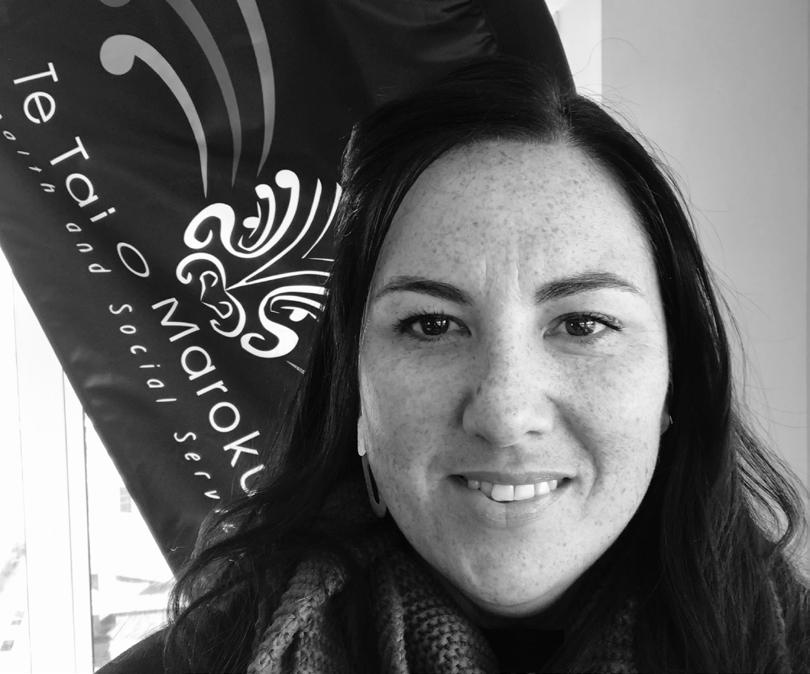
Who or what inspired you to study science / technology?
Hauora was something I understood from a very young age. I became a māmā very young and living in a rural community with no choices in the services that supported me and my babies I wanted what cousins and friends had in the city, a choice that met my needs. I was lucky enough to be given an opportunity to train and be mentored by Miriama Kahu the founder member of Te Tai O Marokura Health and Social Services in Kaikōura.
Why did you choose your particular field?
I chose my field initially because it interested me, and I wanted to be part of providing support to māmā and whānau at what I know to be a most wonderful, and at times, challenging time.
What advice would you give to a young girl contemplating a career in health / science / technology?
Advice is something those that know me know I readily give, especially about my passion that is hauora! My advice would be the same as what I give my ‘Kahu seven’ (Lisa’s seven children): find what your passion is and follow it, never be deterred because there are always solutions, you just sometimes have to know who to reach out to in order to find them.
What hurdles have you faced throughout your studies and career?
Hurdles can be also seen as opportunities I have decided. You will undoubtedly face challenges to achieve your dreams and the key I have found is to ensure you have support around you.
I have always been asked how and why I worked and raised seven tamariki while my husband provided for us and I was not climbing any career ladder, and my answer was the same now as it was then. I have five daughters and it has always been incredibly important to me that they see in practice that their dreams or passions do not have to stop when they became a māmā. They have options and support to continue on their mahi path if that is what they choose.
“Reach out to every single opportunity you can as a rangatahi to experience first-hand some of the learning you think you might be interested in, it will stoke that ahi within you if that is your path!” Lisa Kahu
What’s the best thing about working in science / technology?
Serving our people, seeing and experiencing alongside women, pēpi and their whānau the journey from hapūtānga into parenthood and supporting them to understand the wonder and joy that is growing an amazing human. Seeing health gains and the pride and mana that emanates from within when they acknowledge what an amazing thing they have achieved with change for their pēpi and whānau.
How does gender affect the work you do? Has it affected your career progression?
In my mahi there are few tāne who work in our space, most tables I sit around professionally are wāhine heavy! I don’t feel my gender affects anything I do within my mahi negatively, quite the opposite, I have lived experiences that mean I can connect with our women in a way I may not be able to otherwise.
As a māmā to the Kahu seven, a wife to my husband and Aua to my three moko I feel that I absolutely contribute to their houora journey by being part of the conversation for services that meet the needs of us as a people.
Read Lisa’s full Q&A here

Who or what inspired you to study science / technology?
I’ve always had an interest in technology, so I knew from a young age that I was probably going to go on to work with something that would give me the opportunity to geek out.
Why did you choose your particular field?
The choice of IT came down to discussions with friends and family, and the availability of study options here in Ōtautahi around the time that I was finishing high school and picking a study option. I knew more people that worked in the IT sector, so I was well equipped with questions to ask different tertiary education providers to help me choose which study option would be best for me.
What advice would you give to a young girl contemplating a career in health / science / technology?
Go for it! See if you can set up meetings with people working in the fields you’re interested in, so you can find out the qualifications or experience that would be most useful to help you achieve your goals.
I think it’s always good to see if you can experience a “day in the life” – if I had been on some of the tours around different departments at the hospital that I’ve had since starting work with Te Whatu Ora, I reconsidered a career in IT.
What hurdles have you faced throughout your studies and career?
The biggest hurdle has probably been the years of feeling like it wasn’t good enough to be just as good as the boys at the table. Having to push myself to be more prepared and more certain of the areas I was talking about to be taken as seriously as some of my peers who may have been able to just ‘wing it’ or get a few points wrong without having to face the Spanish Inquisition.
What’s the best thing about working in science / technology?
Working in IT, each day is always going to be different from the previous. It’s great if you’re open to jumping from task to task throughout the day. Having the privilege of working for an organisation like Te Whatu Ora adds the bonus that the work I’m doing has a meaningful impact on improving the lives of New Zealanders without having the skills to be a healthcare professional.
How does gender affect the work you do? Has it affected your career progression?
I’d like to hope that my gender identity doesn’t have a huge impact on the work that I do or my career progression. I think I’ve been quite lucky to have a few “right place at the right time” moments in my career that were able to put me onto a leadership path that I hadn’t previously considered but have since come to love.

Read Ella’s full Q&A here.
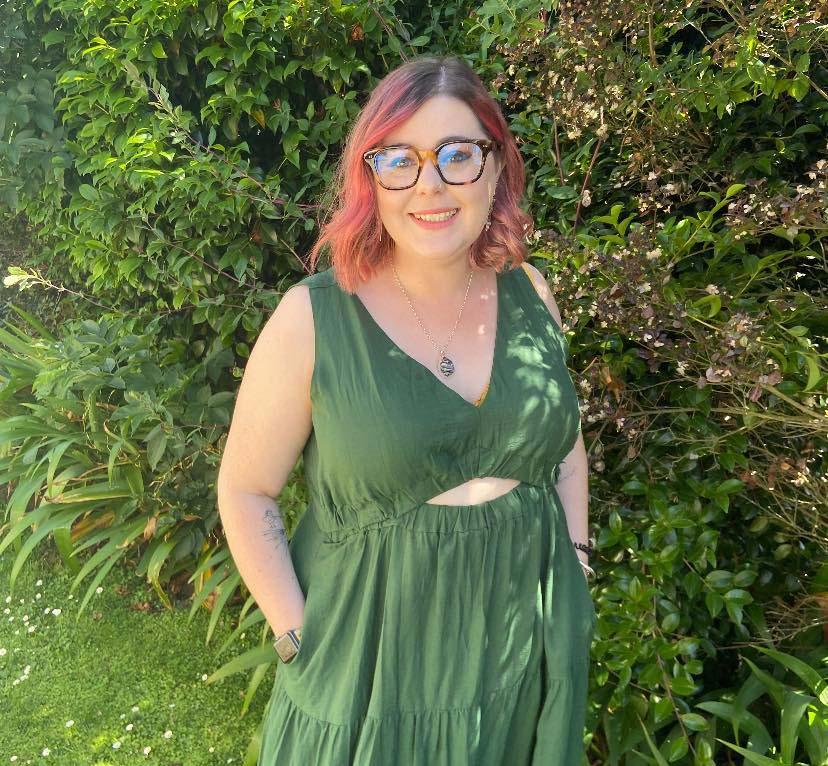
Medical Secretary Kim Woods was so moved by the plight of horses in Fiji she began collecting equipment to make their lives better.
“In 2019 I travelled to Fiji to participate in mission work. After seeing the homemade bits made out of chain and number 8 wire that cause injury to the horses’ mouths, and the overall poor condition of horses in Fiji, I simply could not forget about them.
“I decided I really had to try to do something to help, so I started a Facebook page, ‘Fiji Horse Bit and Bridle Donation’ and created a private charity called Fiji Horse Care NZ,” she says.
Kim collects second-hand horseriding equipment from around New Zealand and takes it to Fiji, travelling out to poor rural villages donating the equipment and teaching the Fijians horse care.
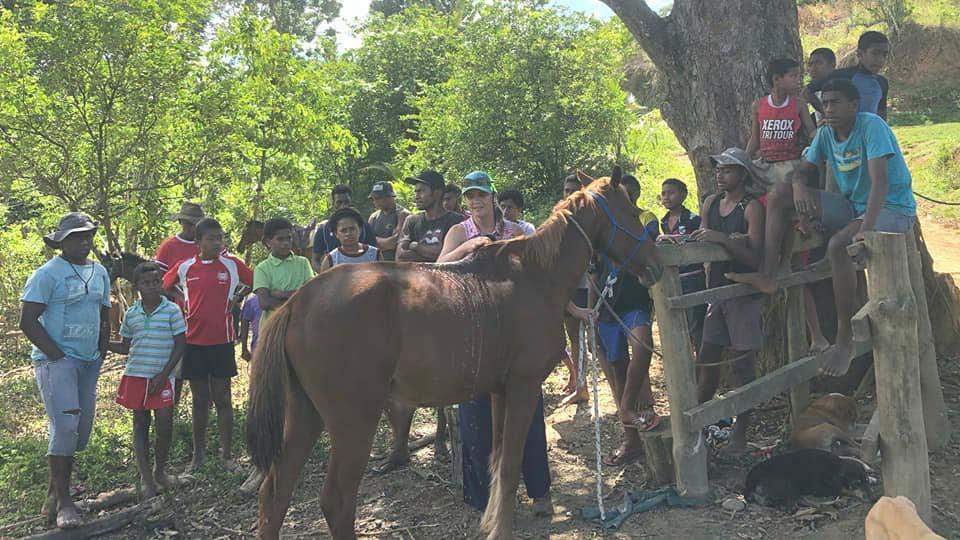

“It is so needed, and the Fijians are wonderful people to work with. They are extremely grateful and humble, and they can’t believe there is a community of people in New Zealand who want to assist with their horses.”
In addition to volunteer work in the villages, Kim, who works in General Medicine at Christchurch Hospital, visits schools donating equipment and teaching horse care. She works with the Fiji Ministry of Agriculture to gain access to villages on the outer islands
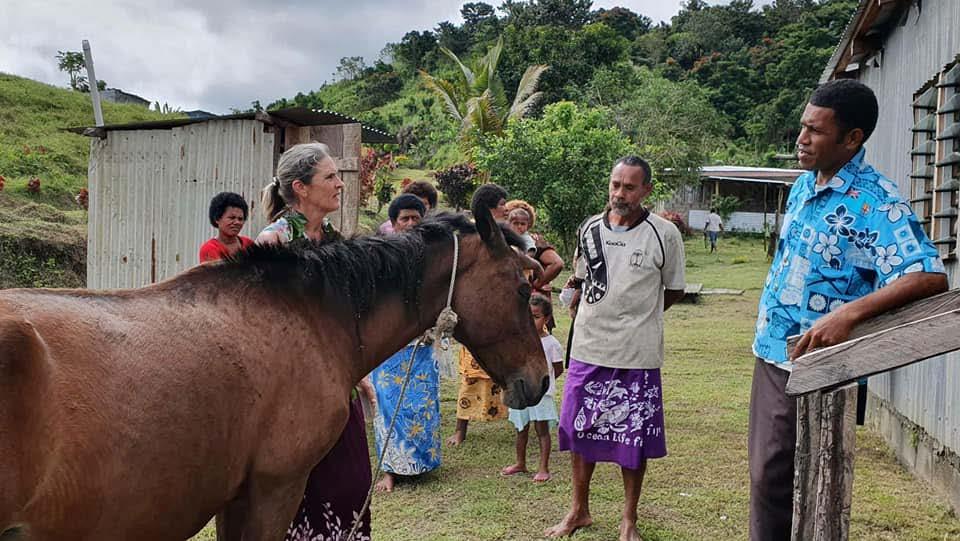
Kim is currently collecting equipment for her next trip to Fiji in June.
“If anyone out there owns horses or knows someone who does, we are accepting donations of saddles, saddle pads, bridles, bits, halters, breast plates, cruppers, surcingles, brushes, hoof picks, fly masks, hoof knives and rasps.
“Please get in touch if you can assist with donating equipment or cleaning the equipment, and if you have any contacts in the freight/air freight industry who could assist with getting the equipment to Fiji, I’d be extremely grateful.”
If you are interested in donating, you can go to the Facebook page or call Kim on 0212152265. There is also a Youtube channel showing videos from previous missions here

Kei ngā kaihoe o tō tātou waka hauora, o Te Whatu Ora Waitaha, tēnā anō koutou. Ngā mihi hoki o te tau hou ki a koutou, ko ō koutou whānau katoa.
To all the paddlers that are powering our waka of health that is Te Whatu Ora Waitaha, hello again. Greetings also of the New Year to you and all your families. Today, we are going to revisit some of the lessons from last year and test your knowledge in the form of a kēmu patapatai, or a quiz.
Kia rite - get ready….
1. There are different dialects of te reo Māori throughout Aotearoa New Zealand.
a. True
b. False
2. Match the following kupu Māori or Māori words with their correct English translation. Māuiui Sore
Rongoā Sick
Hiainu Nervous
Mamae Thirsty Āmaimai Medication
3. What is the kīwaha Māori or idiom for “Give it your all!”?
4. Match the following days of the week to their Māori counterpart.
Monday Wenerei
Tuesday Tāite
Wednesday Hanarei
Thursday Mane
Friday Hātarei
Saturday Tūrei
Sunday Parairei
5. Where is Parihaka?
a. Te Tai o Poutini
b. Taranaki
c. Waikato
d. Murihiku
6. Which of these features is NOT a part of your head or your face?
a. Ihu
b. Matimati
c. Whatu
d. Taringa
7. What is the kupu Māori or Māori word for blind?
a. Turi
b. Kanorau ā-roro
c. Aronga Taera
d. Kāpō
8. How could you say “How are you” to one person only?
a. Kei te aha koe?
b. Kei te pēhea koe?
c. Nō hea koe?
d. Kei te pēhea kōrua?
9. How could you say “Yes” in te reo Māori?
a. Pea
b. Kāo
c. Āe
d. Hei
10. What is the term for a proverbial saying where the speaker is UNKNOWN?
a. Tongikura
b. Whakatauākī
c. Whakataukī
Thank you very much and let us cherish the precious language of this land, the language that is all of ours. The quiz answers are on the next page.
If you have any questions or feedback, please contact us at Hauora.Maori@cdhb.health.nz

1. There are different dialects of te reo Māori throughout Aotearoa New Zealand.
a. True
2. Match the following kupu Māori or Māori words with their correct English translation.
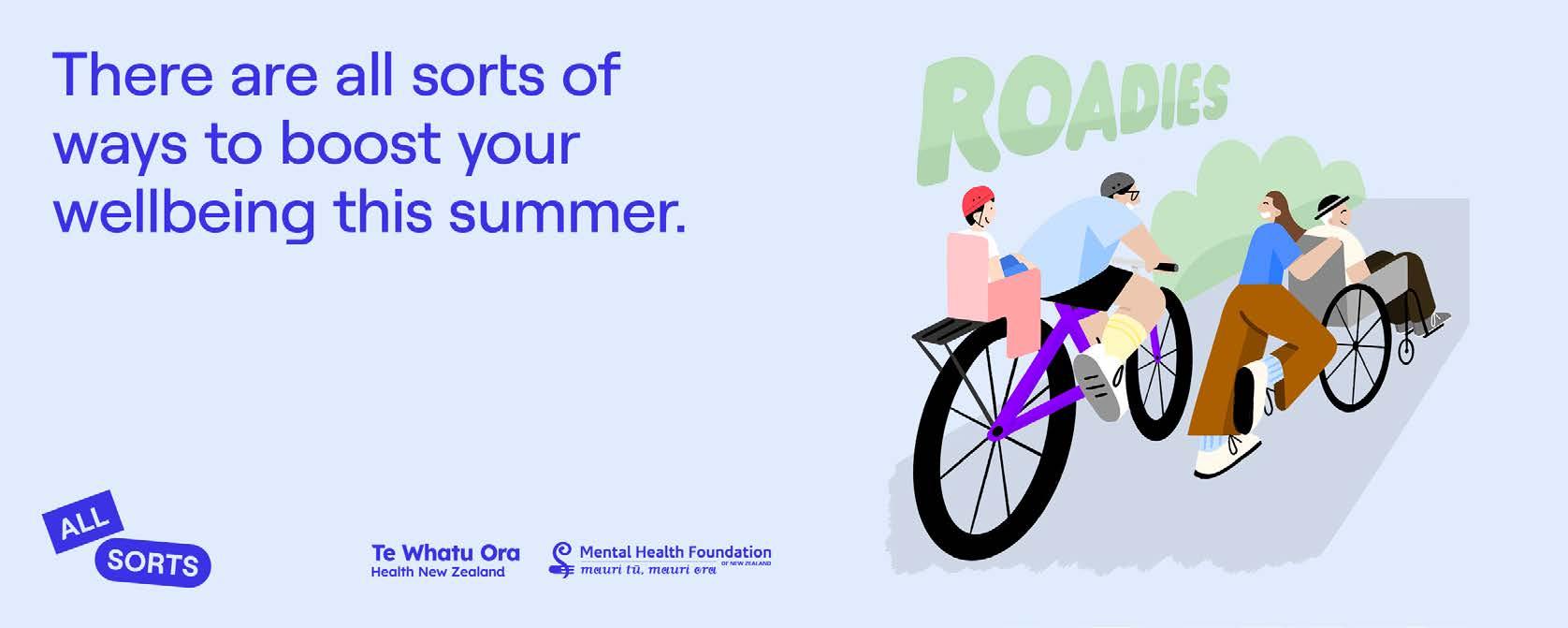
Māuiui Sore
Rongoā Sick
Hiainu Nervous
Mamae Thirsty
Āmaimai Medication
3. What is the kīwaha Māori or idiom for “Give it your all!”?
Karawhiua!
4. Match the following days of the week to their Māori counterpart.
Monday Wenerei
Tuesday Tāite
Wednesday Hanarei
Thursday Mane
Friday Hātarei
Saturday Tūrei
Sunday Parairei
5. Where is Parihaka?
b. Taranaki
6. Which of these features is NOT a part of your head or your face?
b. Matimati
7. What is the kupu Māori or Māori word for blind?
d. Kāpō
8. How could you say “How are you” to one person only?
b. Kei te pēhea koe?
9. How could you say “Yes” in te reo Māori?
c. Āe
10. What is the term for a proverbial saying where the speaker is UNKNOWN?
c. Whakataukī
After many hiking and biking trips around the world I really appreciate just how lucky we are to have a great hut network in New Zealand. Pouring over topographical maps conjures up many great adventures, and any alpine hut is a great place to spend a night, make new friends, and enjoy some well earnt spectacular scenery. Ghost Lake Hut sitting at 1200m on the Old Ghost Rd is a favourite as you can bike to it! So lucky!.
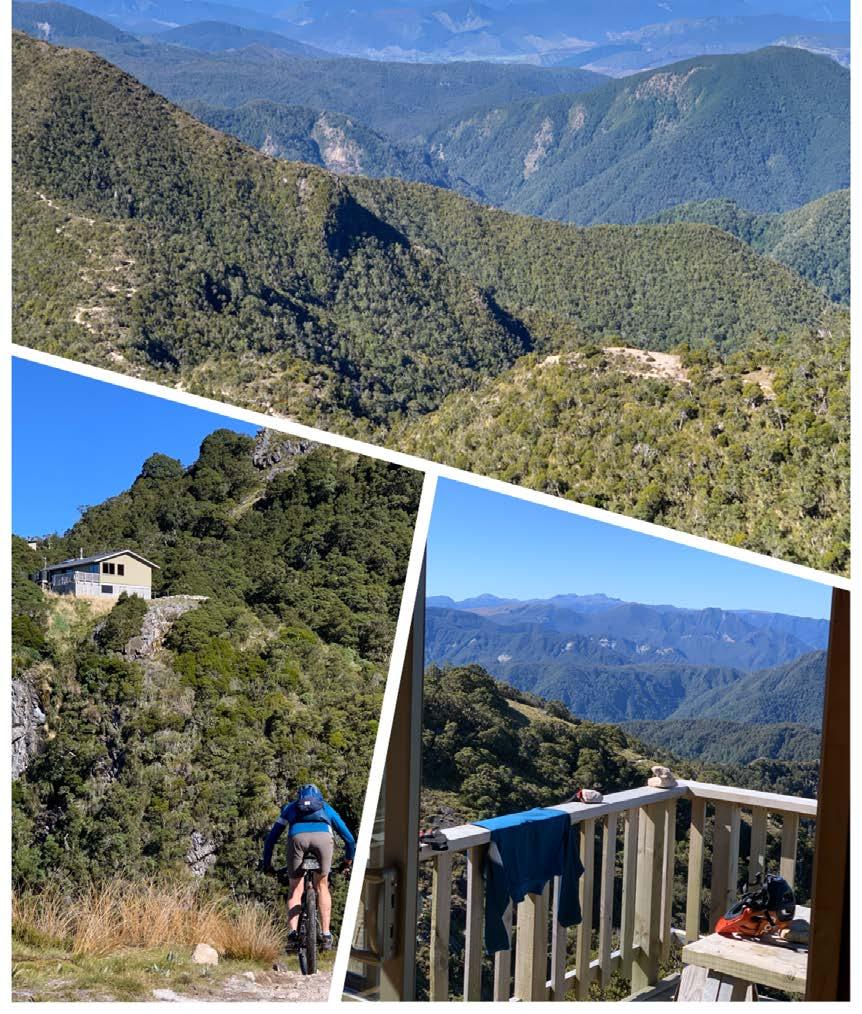 Lynne Odonoghue – Finance and Procurement Systems Manager
Lynne Odonoghue – Finance and Procurement Systems Manager
My partner and I love going to Okains Bay with Kevin our VW Kombi van. Beautiful beach and swimming holes in the Estuary. A great way to relax.
Theresa Marden – Registered NurseShare with us your 'happy place' in Aotearoa New Zealand. Somewhere you love where you can relax, have fun, get physical or be with people who mean a lot to you. A place you may think is beautiful or that brings back happy memories. It could be a town, a river, a beach. It might be a fishing spot, a park, a walking track, a restaurant or even a whole city. Where is your slice of Kiwi heaven?

Click here to share your submission (you must do this from your work email address). If you have any issues, please email communications@cdhb.health.nz

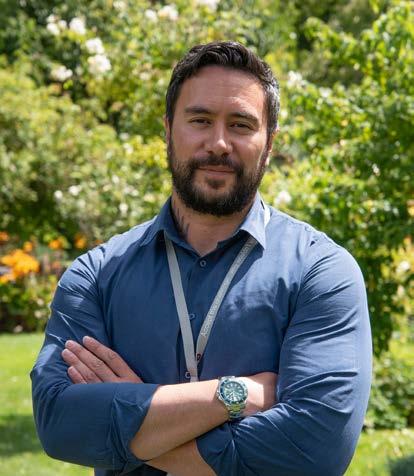

What does your job involve?
I provide operational direction to our wonderful contracted security managers and security guard team here at the Christchurch campus. I also provide protective security advice to stakeholders organisation-wide, and work closely with Protective Security Manager Shane Heath and our contracted security team on continuous service improvement.
What advice would you give someone keen to enter your field?
Security has a fairly wide scope, so I’ll focus specifically on the advising part.
My background is in international security operations, particularly in hostile environments and diplomatic security. I’ve previously served with the New Zealand Army in Afghanistan and Iraq, and worked in a private capacity as a security adviser to the Australian Government in Baghdad; so there is some training and experience there that can be very difficult to acquire outside of these spheres.
Working in the capacity of an adviser means you need a good amount of subject matter expertise and experience (which would be expected in any field if you’re providing ‘advice’). You need to understand the fundamentals of security operations; understand tactical, operational and strategic outlooks and outcomes; understand desired security effects (Detect, Deter, Delay, Respond, Recover) and how to apply them to human problems (or rather problems created by humans); building and maintaining professional relationships; and a whole lot more.
You need to be confident in the advice you provide, the decisions you make and your ability to justify your courses of action. These things generally come with time, education/training and experience.
So, my advice? For someone who doesn’t have a military or police background: seek out a tertiary security course/diploma/degree to gain a highlevel understanding. Gain experience in the security industry, take management courses, get used to speaking in front of and presenting to people, gain experience in decision making, and put yourself out there!
Who inspires you and why?
Mr Wiremu Moffitt (Google him). He is the personification of the quiet professional, and someone I’ve had the pleasure of working for and learning from in my old life.
What do Waitaha Canterbury’s values (Care and respect for others, Integrity in all we do and Responsibility for outcomes) mean to you in your role?
Security within a healthcare and hospital environment requires empathy, honesty, responsibility and a lot of understanding. All people involved in a serious security incident, be they a patient, member of the public, member of staff or member of the security team, can be affected (sometimes greatly) in a negative way as a result. Often the circumstances leading to such incidents can bring about fear, uncertainty, trauma, sadness, desperation and other factors that absolutely require care, respect, integrity and responsibility from the security team members dealing with the incident. This carries through to all levels of the Security Department.
If you could be anywhere in the world right now where would you be? Hawaii.
Who would you want to play you if there was a movie made about your life?
Anyone willing to get paid in Marmite sandwiches, because I can see the budget for this movie being around the hundred buck mark, if I’m lucky!
What are your hobbies/interests outside of work?
Gazing through my astronomy binoculars is something I’ve picked up recently. So far, so good. Venus against an orange sky looks pretty spectacular to me.
If you would like to take part in this column or would like to nominate someone please contact Naomi.Gilling@cdhb.health.nz
Recently I came into ED with a catheter insertion site that was very leaky. I am writing to say that the care I received was really good. Although I was in the ED for quite some time, I never felt that I was left waiting for an unreasonable time between seeing staff members. I felt like the doctor explained the options and treated my questions with respect and care. I also experienced a nurse who was caring and warm, even though things seemed busy. Thanks for your excellent work.
Thank you Ward A5. You all really helped me in my recovery from surgery. You are awesome and so caring.

Thank you to the wonderful team in ED for your assistance. Down from Auckland for a family wedding and my husband had a grand mal seizure. St John staff were a delight and so kind, as were the doctors and nurses in ED. Appreciate your kindness. You do a wonderful job.

Heartfelt thanks to all the staff, including the lovely person who made me tea, when I spent a night in ED with my daughter. Your care, knowledge and professionalism has been very much appreciated by our family.
My son has had many dealings with Christchurch Hospital and Brenda is real stand-out. She is extremely thorough, which we really appreciate.
When we didn’t understand something a doctor told us, she answered all our questions. My son has a complex eye condition and she always tells us to text her if anything comes up. She also always sees us quickly if something comes up with our son’s eye. I feel confident that if anything goes wrong with my son’s eye (and there is a reasonable risk of this) that it will be picked up very quickly because of her. She is clearly passionate about what she does, and we are so grateful for her.
I would like to express my gratitude to the nurses of Ward A3 of Christchurch Hospital, as well as my doctors and surgical team, for how I was treated and well cared for during my recent surgery and stay. It was the first time I had ever had surgery and stayed in hospital, so it was an extremely traumatic experience for me. However, I felt that I always knew what was happening, was cared for, treated with respect and nothing was ever an issue. I want to give a special mention to Nurse April MacNeill who works on Ward A3. April treated me with compassion, like a real person, not just a patient. She took her time with me to make me feel comfortable and at ease. I was extremely grateful that April was my nurse during a lot of the big and scary milestones for me during my stay, which made me feel calm and safe. I cannot speak highly enough about her patient care.
Everything was absolutely A+. No complaints and extremely good start to service from the receptionist to the operator. All in all, very impressive and grateful.
I came in by ambulance in the early morning with my elderly mother. The ambulance staff were very efficient and reassuring. Hospital staff in ED were outstanding! Thank you is never enough.
Thank you for your amazing care and professionalism! Every time we come here, I am so impressed with how well this clinic operates. A well-oiled machine but still with a caring, human approach. Extraordinary nursing! (Peta, Heather, Kate, and many, many, others).
We would like to thank all the staff for their caring nature and amazing efforts. Credit to your team for everything you did with [patient name]’s passing. Thank you.
What an absolute pleasure to come have an MRI and feeling scared and anxious, to be made to feel so comfortable and relaxed. My Radiologist, Kelsey, was an absolute gem, so kind, helpful and considerate. Thanks a million Kelsey. I will never forget you for the way you took such good care of me. Reckon I’ve been ‘cured’ from being scared of MRIs. Thanks also to the reception staff – so friendly, helpful and professional.
I had a heart attack last year and was sent to Christchurch Hospital where I had five stents inserted. I cannot thank the whole team enough. The very skilled doctors who inserted the stents saved my life! They were exemplary. All staff members treated me with respect. They looked after my needs continuously. No complaints at all about the food either. Thank you to everyone who was part of my journey back to health. Without you all I would not be here.
My 96 year-old dad was taken to Christchurch Hospital by ambulance recently. He spent time in ED and the Medical Assessment Unit until his death. Every single staff member who cared for him and interacted with us, his family, was kind and thoughtful. We could not have asked for better care. Thank you.
The treatment I have received has been fabulous! Respectful, caring, informative and more! Thank you to all the department.
I have had a wonderful (long) stay in Ward B3. I feel like I have been looked after so well and felt to always be the number one priority of any staff member caring for me. Ward B3 staff go over and above, which has felt so welcoming and homely. The facilities in here are wonderful, tidy and spacious. Could not have asked for better service at Christchurch Hospital. P.S Evie and Sammi are superstars!
A massive compliment to Tia and the team who I saw every day for my week of treatment. They took patient care to the next level and truly care about the job they do. Tia was amazing at reassuring me every step of the way and explaining everything to me and my family, very comforting at a scary time! Keep up the amazing work.

The COVID-19 pandemic has been an incredibly challenging time for the FIT testing team, having completed over 6000 FIT tests for Te Whatu Ora staff. We would like to recognise and acknowledge the support and hard work that Sasi Styles has contributed to the team. Assisting as a crucial FIT testing booking coordinator for staff across The Princess Margaret Hospital and Burwood Hospital campuses. It has been a real pleasure to work alongside Sasi during this period and we hope that we can continue this into the future. On behalf of the fit testing team, thank you!
From: Richard, Catherine and Shona in the Respiratory Protection Team #carestartshere
The value of Christchurch Hospital’s state of the art rooftop helipad was highlighted once more recently when a patient went into cardiac arrest as the rescue helicopter was coming in to land.
“We were able to get the patient downstairs and straight into Resus in less than five minutes,” says Garden City Aviation Flight Crew Manager Rick Knight.

“That’s a huge difference from where we were before the helipad, landing at Hagley Park, and it taking an average of 13 minutes to get to the hospital by road ambulance.”
Reducing the timeframe for getting critical patients to definitive care whether it is due to trauma or a medical event makes a huge difference in their outcome.
“I have been involved in helicopter rescue for 20plus years, you just can’t compare the two sites (helipad and Hagley Park landing pad). We waited for this for so long and it’s working really well, not to mention the fact that the view from the top is beautiful,” Rick says.
The inaugural helipad landing happened on 1 September 2020 and the helipad (the most advanced in New Zealand) has been fully operational since November 2020. The Māia Health Foundation began fundraising for it in early 2018 and raised over $500,000 in six months. This was then dollar matched by the Rātā Foundation.
Māia’s efforts continued with a further $1,000,000 raised through community fundraising, events, and significant grants from Canterbury Orthopaedic

Services, Mackenzie Charitable Foundation and Advance Ashburton. Individuals and families also made generous donations.
Patient privacy and dignity when landing on the hospital roof is another very important aspect of the helipad, Rick says.
“Previously we’d be unloading patients in front of children playing netball and cricket on Hagley Park which wasn’t very appropriate. There is also now the aspect of security for the helicopter landing on the helipad compared to when we used to land in the park.
“Particularly at night we used to have to be really vigilant making sure no one was approaching the helicopter when we were unloading patients.”
Being able to have two helicopters on the helipad at the same time is also a huge advantage, as is having the orderlies upstairs at the helipad waiting for the helicopter and helping transport patients and equipment to the Emergency Department.
The helipad is a total game-changer not only for the Canterbury region but to every patient who is now flown in from around the country, he says.

Christchurch Women’s Hospital is undergoing a lighting upgrade. The purpose of this upgrade is to reduce Waitaha Canterbury’s carbon emissions and operational costs and eliminate some potential health and safety hazards by replacing the old fluorescent lights with new efficient LED lights. This lighting upgrade will reduce the annual electricity cost by $48,583, and the annual CO2 carbon emissions by 52 tonnes, a 54 percent reduction.
The building was built in 2005 and the old fluorescent lighting system is not energy efficient and is nearly at the end of its life. Approximately 3000 light fittings were identified for replacement and most of them were fluorescent tubes.
Energy Efficient Engineer Any Liu is leading this project. “The failed fluorescent lamps and components caused a lot of unplanned maintenance and unsatisfactory lighting which was expensive and disrupted the normal hospital operations.”
“In addition, ballasts (see the photo above right) are the core component of fluorescent lights and faulty ballasts can generate heat, smoke, and electrical odour causing potential health and safety hazards.”

The funding for this project was subsidised by the State Sector Decarbonisation Fund (SSDF) programme which was created by Government to reduce carbon emissions in the state sector. The SSDF will cover 40 percent of the project cost.
Following a professional lighting study conducted for the building in 2019, Maintenance and Engineering Manager, Terry Walker said the recommended upgrade solution was to retrofit the recessed lights with new LED tubes and replace all other lights with new LED units.
To enhance energy and cost savings, the team has optimised the quantity and the power output of the new LED lights as long as the light levels are compliant with the lighting standards.
“For example, the total quantity of the corridor lights will be reduced by 40 percent through a retrofit of only every second lighting unit,” says Terry.
The installation work started in June 2022. With the help and support from all staff at the Christchurch Women’s Hospital, 60 percent of the installation
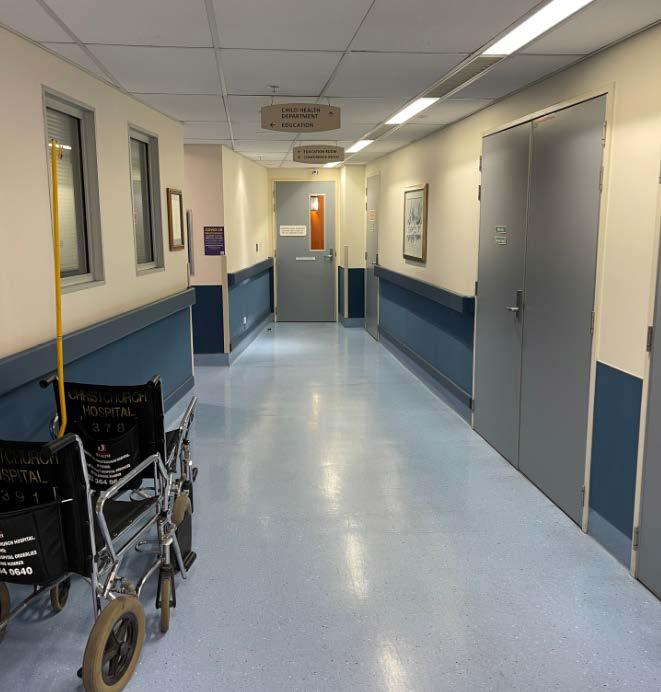
work has been completed so far. The project is expected to be finished in June this year.
“Transitioning to clean and sustainable energy is a high priority in Aotearoa. For Waitaha Canterbury as a public sector entity and a large energy user, this lighting upgrade project is one of our many actions to deliver on the national priorities and expectations.”
This is the second item in the series providing tips on creating accessible information and documents. The following aspects need to be considered when creating accessible documents:
The minimum body type size recommended is:
› 12 point for a general audience

› 16 point for people with vision impairment/low vision, or with a learning disability.

› Use a strong sans-serif font, such as Arial.
› Avoid highly stylised or simulated handwriting and typefaces.
› Use a typeface that makes numerals distinct.
Avoid using:
› typefaces with light weight options because there is less contrast between the paper and text
› italics, which can make text difficult to read for some people
› all capital letters in words. The human eye reads by recognising the shape of words and a word in all capitals interferes with this recognition
› underlining.
This content has been adapted from ‘Guidelines for Producing Clear Print’ by Round Table on Information Access for People with Print Disabilities Inc.
To learn more about creating accessible documents, look out for the items in future pānui. For queries, contact Paul Barclay – Senior Advisor Disability Communications Engagement on paul.barclay@cdhb.health.nz.
Something for You is the Te Whatu Ora - Waitaha Canterbury employee benefits programme. The deals offered are from the New Zealand business community to say thank you for all that you do. Please see below offers for you.

Torpedo7 – Friends and Family Offer From 17th February – 27 February 2023
Get 10 percent off any class pack, valid for six months from date of purchase. Introductory deal: TryTorpedo7 is offering up to 50 percent off on a huge range of gear for Te Whatu Ora staff and their families. Instore and online, enter or mention the promo code in the flyer at the checkout on the website www.torpedo7.co.nz

Harvey Norman – Christchurch Central, Northwood, Hornby, Tower Junction
Discounted rates when you present with your staff ID, simply speak to staff as the amount can vary from product to product.
Caci Clnic - Merivale, Riccarton, Sydenham, Rolleston

Have a free consultation and try a skin conditioning treatment for $50 (usually up to $120) - show your staff ID to redeem, see more information here
Cosmetic Clinic - Christchurch Central and Riccarton

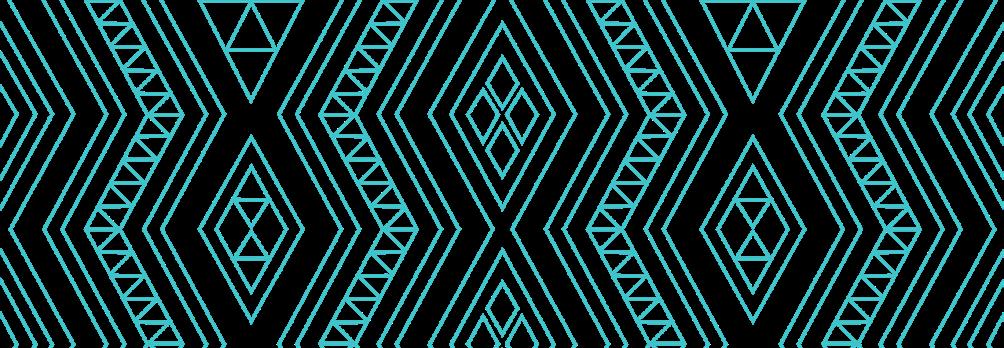
Get 20 percent off skin treatments and laser, this does not include injectables or product - show your staff ID instore to redeem.
Gloucester Cottage - 746 Gloucester Street, Christchurch Central Get 10 Percent off all services. Show your staff ID to redeem.


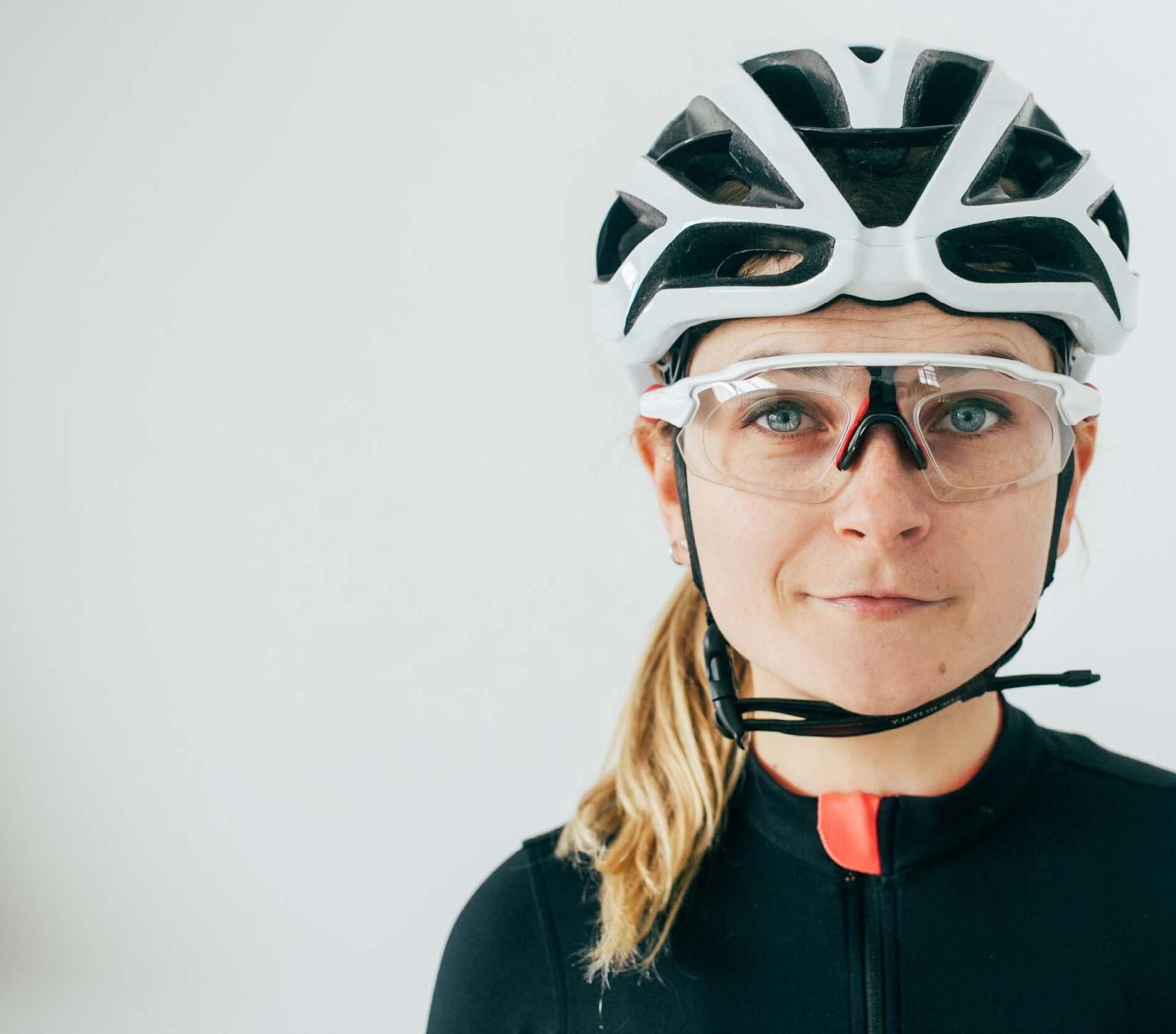


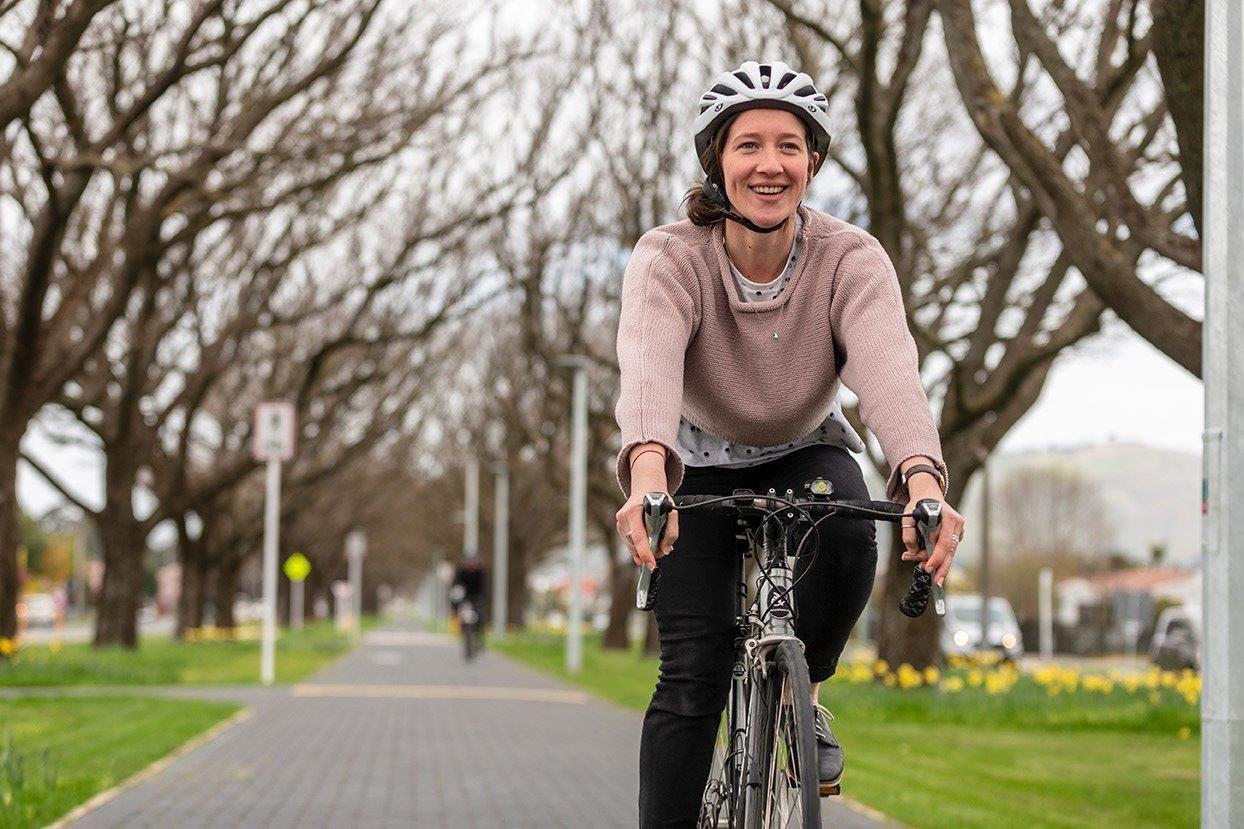

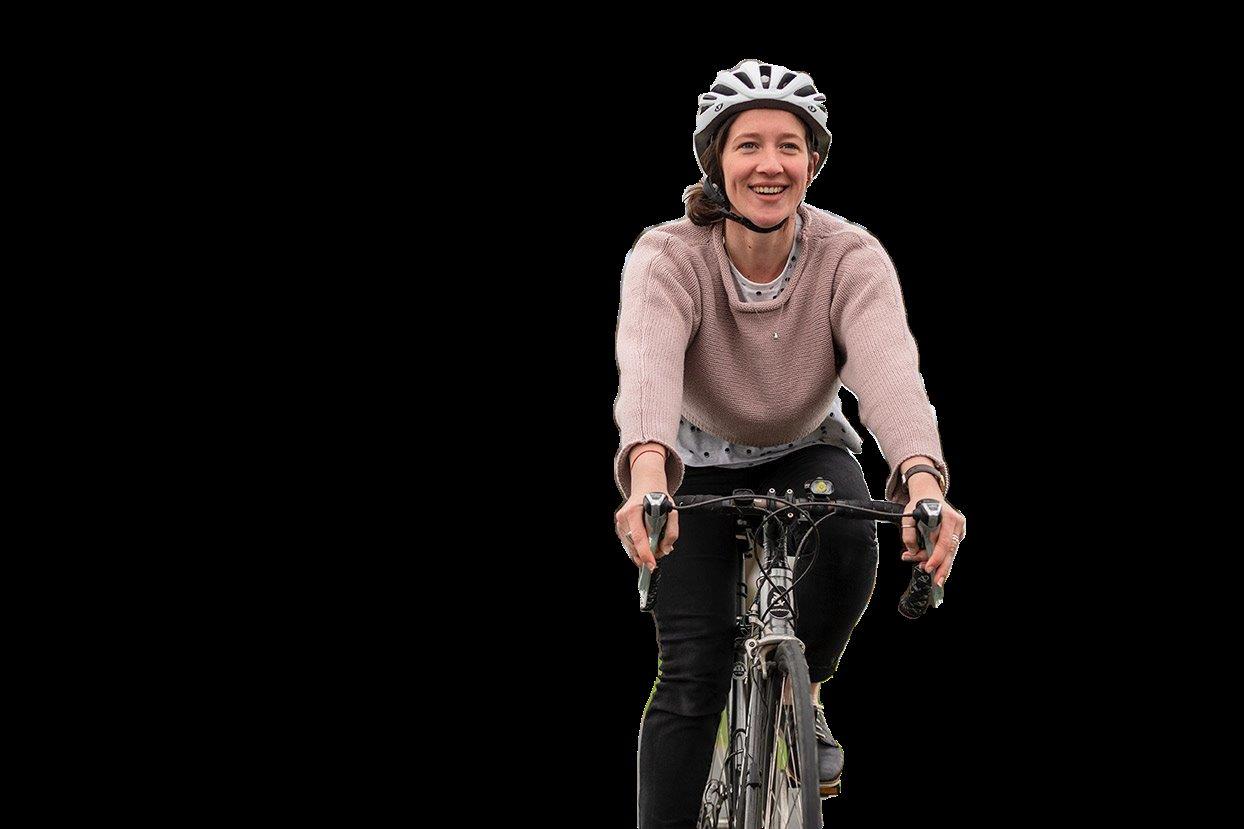

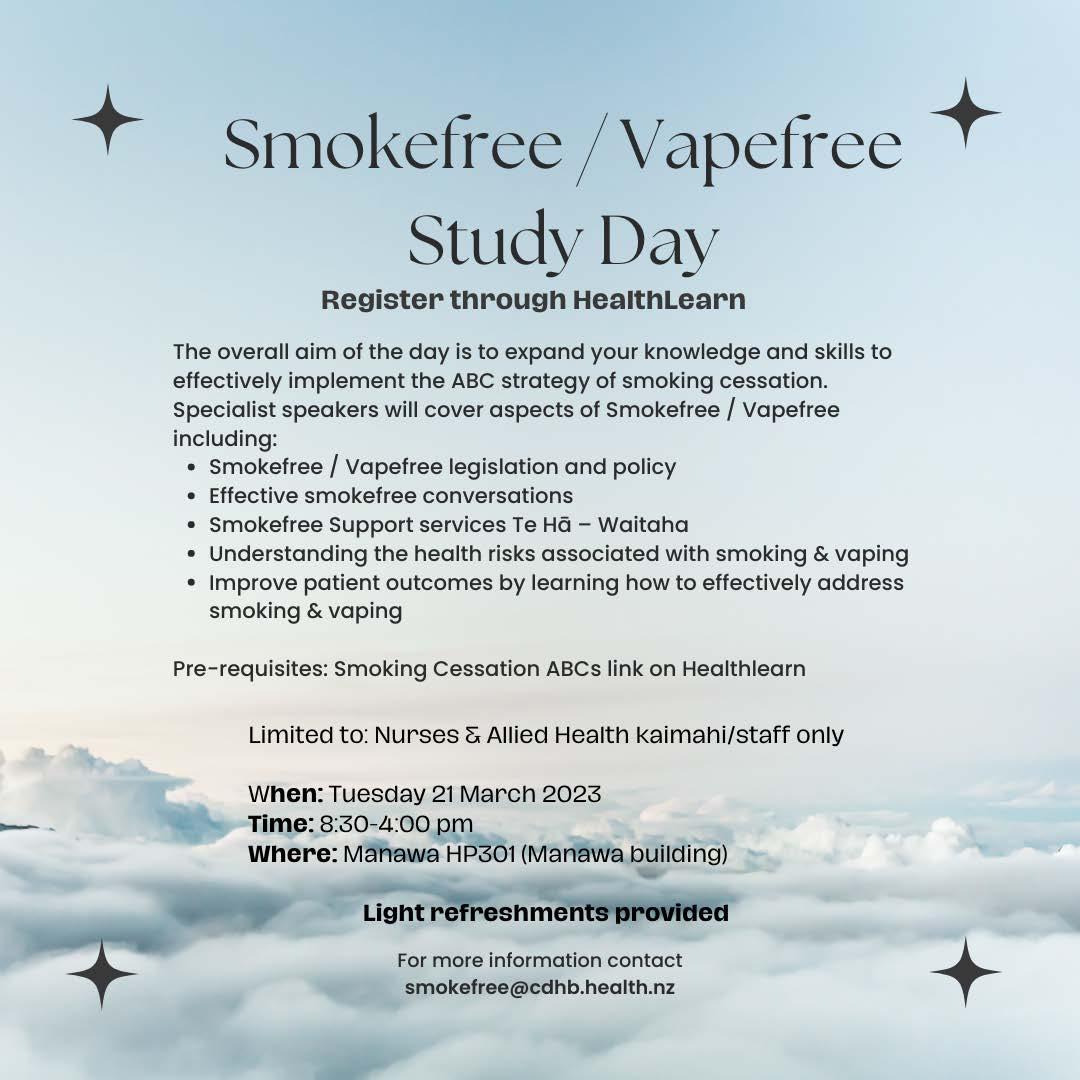
New Zealanders are encouraged to show aroha this Valentine's Day by learning how to save a life.


The message comes off the back of the latest Out-of-Hospital Cardiac Arrest (OHCA) reports from New Zealand’s ambulance services, which shows that cardiac arrest survival rates are down for the second consecutive year.

Would you know what to do if someone went into cardiac arrest? What if it was someone you loved?
Survival rates can more than double with community help. Bystanders can save lives by starting cardiopulmonary resuscitation (CPR) and using an Automated External Defibrillator (AED).
You can sign up to CPR courses through:
› New Zealand Red Cross
› Hato Hone St John

› Sport Canterbury
St John also runs free programmes in communities such as 3 Steps for Life and ASB St John in Schools, and facilitates donations of AEDs to at-risk communities.
Once you have completed your CPR course, you can sign up to be a GoodSAM responder. Anyone confident in CPR can join up to GoodSAM, which is an app that alerts people when there is someone in cardiac arrest nearby, allowing them to possibly save a life.